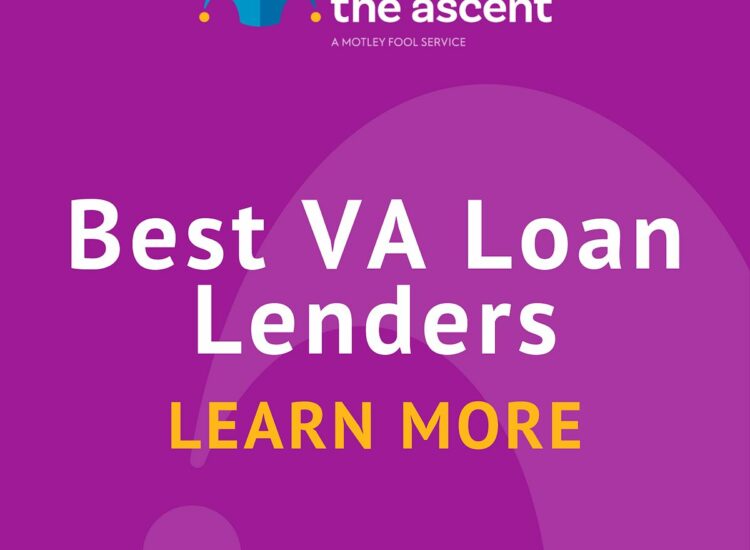Securing funding is a major hurdle for startups. Many lack the collateral needed for traditional loans, hindering growth. Unsecured business loans offer an alternative, but come with higher interest rates and the risk of personal liability. Understanding the nuances of these loans is crucial for navigating the complex world of startup financing.
Toc
- 1. Understanding Unsecured Business Loans for Startups
- 2. Benefits and Drawbacks of Unsecured Business Loans for Startups
- 3. Finding the Right Unsecured Business Loan Lender for Your Startup
- 4. The Unsecured Business Loan Application Process for Startups
- 5. Alternative Funding Options for Startups
- 6. Building Your Business Credit Score
- 7. Related articles 02:
- 8. Frequently Asked Questions
- 9. Conclusion
- 10. Related articles 01:
Understanding Unsecured Business Loans for Startups
An unsecured business loan is a financing option that does not require the borrower to put up collateral, such as real estate or equipment. This makes it an attractive choice for startups that may not have substantial assets to back a loan. Unlike secured loans, where lenders can claim collateral in the event of default, unsecured loans rely heavily on the creditworthiness of the borrower and the financial health of the business.
Lenders assess the risk associated with providing a business unsecured loan by evaluating several factors, including credit scores, cash flow, and revenue projections. While no collateral is required, many lenders will seek a personal guarantee from the business owner, which means that if the business fails to repay the loan, the owner is personally responsible for the debt. This aspect underscores the importance of understanding the implications of taking out an unsecured loan business.
For startups that often lack the necessary collateral, unsecured loans can provide a vital lifeline, enabling them to obtain the funding needed for essential expenses, such as equipment purchases, marketing initiatives, or operational costs.
Benefits and Drawbacks of Unsecured Business Loans for Startups
When considering an unsecured business loan, it’s essential to weigh the benefits against the drawbacks:
Benefits
-
No Collateral Required: One of the most significant advantages is that you don’t need to risk personal assets to secure funding. This can be particularly beneficial for new entrepreneurs who may not have substantial assets.
-
Faster Approval Process: Since lenders do not need to appraise collateral, the approval process can be quicker. This is crucial for startups that need immediate access to capital to seize opportunities or cover urgent expenses.
-
Flexible Use of Funds: Unsecured loans allow for versatility in fund usage, whether it’s for operational costs, hiring staff, or expanding your business.
Drawbacks
-
Higher Interest Rates: Unsecured business loans typically come with higher interest rates than secured loans. These rates are often variable, fluctuating with the prime rate and the lender’s assessment of your business’s creditworthiness and the current economic climate. This reflects the increased risk lenders assume when they do not have collateral to fall back on.
-
Smaller Loan Amounts and Shorter Terms: Lenders may offer smaller loan amounts and shorter repayment terms compared to secured loans, reflecting the higher risk involved.
-
Personal Liability: Even though the loan is unsecured, many lenders will still require a personal guarantee. This means that if the business cannot repay the loan, the owner’s personal assets could be at risk.
By understanding these pros and cons, startups can make informed decisions about whether a business loan unsecured is the right fit for their financial needs.
Finding the Right Unsecured Business Loan Lender for Your Startup
Securing an unsecured business loan involves choosing the right lender. Here are some key points to consider when exploring your options:
Types of Lenders
- Online Lenders: These lenders often provide quick funding with less stringent requirements, making them a popular choice for startups.
- Traditional Banks: While they may offer lower interest rates, they often have stricter requirements and longer approval times.
- Credit Unions: These nonprofit organizations can provide competitive rates and personalized service.
- SBA Loans: The Small Business Administration offers several loan programs, including the 7(a) program, which may provide unsecured options, although collateral may still be required.
Factors to Consider
When comparing unsecured business loan lenders, consider the following:
- Interest Rates and APR: Look for competitive rates, but be aware that unsecured loans generally have higher rates than secured options. Focus on the Annual Percentage Rate (APR) rather than just the interest rate, as the APR includes all fees, providing a more complete picture of the loan’s true cost.
- Fees: Understand any additional fees associated with the loan, such as origination fees or prepayment penalties.
- Repayment Terms: Check the length of the repayment period and the flexibility of payment schedules.
- Customer Reviews: Research lender reputations through online reviews and testimonials to gauge customer satisfaction.
Tips for Improving Approval Chances
To increase your chances of securing an unsecure business loan, focus on:
- Building a Strong Credit Score: A higher credit score can improve your chances of approval and may lead to more favorable terms.
- Creating a Detailed Business Plan: A comprehensive business plan can showcase your business’s potential and financial projections.
- Demonstrating Positive Cash Flow: Lenders want to see that your business can generate enough cash to cover loan repayments.
The Unsecured Business Loan Application Process for Startups
Navigating the application process for an unsecured business loan can seem daunting, but understanding the steps can streamline the experience:
Required Documentation
Prepare the following documents to facilitate the application process:
- Business Plan: A well-structured plan detailing your business model, market analysis, and financial projections.
- Financial Statements: Recent income statements, balance sheets, and cash flow statements.
- Tax Returns: Personal and business tax returns from the past few years.
- Credit History: Information on your personal and business credit scores.
Application Process
-
Complete the Application: Fill out the lender’s application accurately and completely, providing all required information about your business and financial situation.
-
Underwriting Process: After submission, the lender will assess your creditworthiness and financial health. They may ask for additional documentation or clarification during this phase.
-
Follow-Up: Maintain communication with the lender throughout the process. Address any questions or concerns promptly to improve your chances of approval.

Alternative Funding Options for Startups
While an unsecured business loan can be an effective financing option, it is not the only one available. Here are some alternatives to consider:
Crowdfunding
Platforms like Kickstarter and Indiegogo allow you to raise funds from a broad audience in exchange for rewards or equity. This approach can be particularly effective for startups with innovative products and a strong marketing strategy.
Venture Capital and Angel Investors
If your startup shows significant growth potential, you might attract venture capital or angel investors. These investors often provide not only capital but also mentorship and industry connections.
Bootstrapping
Funding your startup through personal savings or reinvesting profits can be a slower process but offers complete control over your business without incurring debt.
By evaluating these alternative funding options alongside unsecured business loans, startups can choose the path that best aligns with their financial strategy and growth objectives.
Building Your Business Credit Score
A strong business credit score is crucial for securing an unsecured loan business. Here are some strategies to improve your creditworthiness:
1. https://goldnews24h.com/archive/5149/
2. https://goldnews24h.com/archive/5020/
3. https://goldnews24h.com/archive/5115/
- Timely Payments: Ensure all bills and debts are paid on time to build a positive credit history.
- Maintain Accurate Financial Records: Keep detailed records of your business transactions to provide transparency to lenders.
- Obtain Business Credit Cards: Using business credit cards responsibly can help build your credit profile.
- Monitor Your Credit Report: Regularly check your credit report for inaccuracies and resolve any discrepancies.
Frequently Asked Questions
Q: Can I get an unsecured business loan with bad credit?
A: It can be challenging, but some lenders focus on startups with limited credit history. They may consider your business plan and cash flow projections.
Q: What are typical interest rates for unsecured business loans?
A: Interest rates can vary widely, typically ranging from 10% to 30% or more, depending on factors like credit score and lender policies.
Q: How long does it take to get approved for an unsecured business loan?
A: Approval times can differ; online lenders may offer same-day or next-day funding, while traditional banks may take longer.
Q: What happens if I can’t repay the loan?
A: Non-payment can severely damage your credit score, and you may be personally liable if you provided a personal guarantee.
Q: What’s the difference between a term loan and a line of credit?
A: A term loan provides a lump sum with fixed payments, while a line of credit allows you to borrow and repay multiple times up to a specified limit.
Conclusion
Securing funding is crucial for startup success. Unsecured business loans offer a viable option, especially for those lacking collateral. By understanding the benefits, drawbacks, and application process, and by building a strong business credit score, startups can significantly improve their chances of securing the necessary capital. Carefully compare lenders, choose the option that best suits your needs, and remember to always read the fine print before signing any loan agreement. Start your search for the perfect unsecured business loan today!
1. https://goldnews24h.com/archive/5165/
2. https://goldnews24h.com/archive/5109/
3. https://goldnews24h.com/archive/5114/










